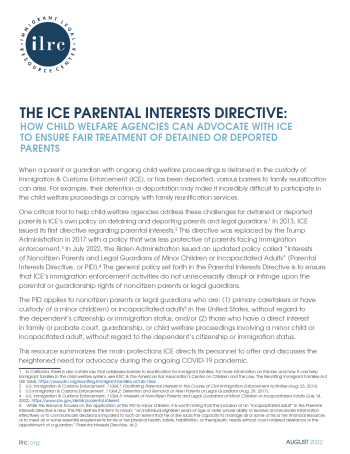
This resource summarizes the ICE Parental Interests Directive – a critical tool to help child welfare agencies address challenges for detained or deported parents – and explains how to use the Directive to advocate with ICE. It also discusses the heightened need for advocacy during the COVID-19 pandemic.
On August 30, 2022, the Biden Administration issued a new rule on Deferred Action for Childhood Arrivals (DACA) that will incorporate DACA into the Federal Regulations. Since its announcement, several questions have been raised around who can access DACA now and what it means for all those first-time applicants who are waiting to obtain DACA. This community resource outlines key points for you to keep in mind as you navigate access to DACA now and when the rule goes into effect on October 31, 2022.
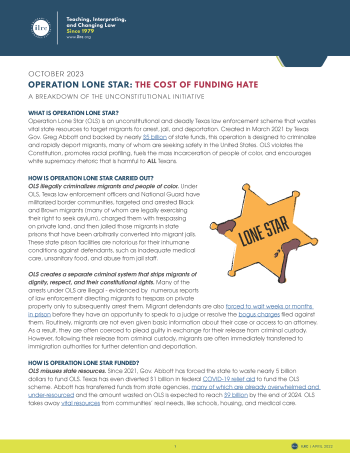
In Texas, Black and Latinx migrants are being harmed by Operation Lone Star- an unconstitutional and racist law enforcement operation that is criminalizing migrants who are seeking safety in the U.S. border. Operation Lone Star is a complex scheme involving multiple law enforcement agencies in the state. This comprehensive resource explains how Operation Lonestar is being implemented and funded, explains why this operation is illegal and unconstitutional, highlights how this scheme expands the carceral and enforcement systems, and how it’s harming entire border communities.
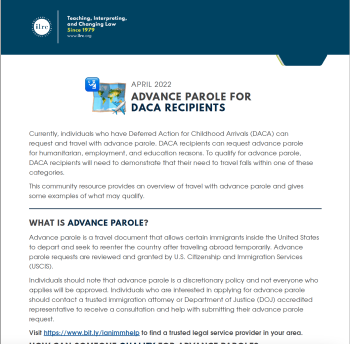
Currently, individuals who have Deferred Action for Childhood Arrivals (DACA) can request and travel with Advance Parole. DACA recipients can request Advance Parole for humanitarian, employment, and education reasons. To qualify, DACA recipients will need to demonstrate that their need to travel falls within one of these categories. This community resource provides an overview of travel with Advance Parole and gives some examples of what may qualify.
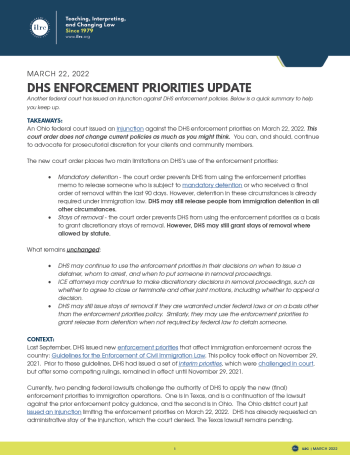
Another federal court has issued an injunction against DHS enforcement policies. Below is a quick summary to help you keep up. This court order does not change current policies as much as you might think. You can, and should, continue to advocate for prosecutorial discretion for your clients and community members.
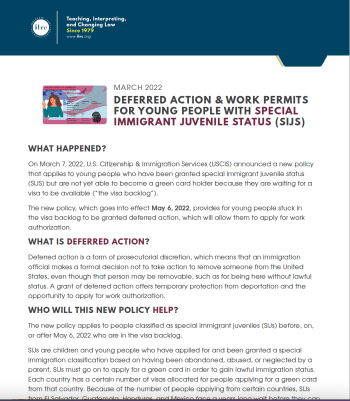
On March 7, 2022, U.S. Citizenship & Immigration Services (USCIS) announced a new policy that applies to young people who have been granted Special Immigrant Juvenile Status (SIJS) but are not yet able to become a green card holder because they are waiting for a visa to be available (“the visa backlog”). The new policy, which goes into effect May 6, 2022, provides for young people stuck in the visa backlog to be granted deferred action, which will allow them to apply for work authorization. This guide addresses some questions the community may have about this recent change.
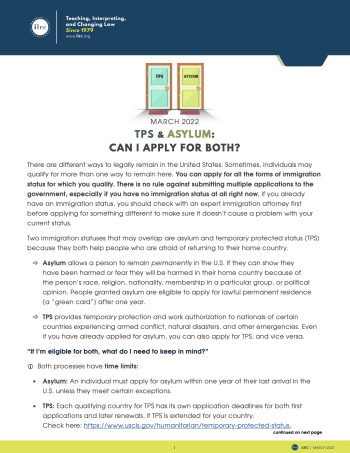
Two immigration statuses that may overlap are Asylum and Temporary Protected Status (TPS) because they both help people who are afraid of returning to their home country. While these two are different in a few ways, it is useful to know what each option offers and that applying for both is allowed, so long as an applicant is eligible. This brief guide delves into the ways these two options might intersect and what to keep in mind as individuals consider each type of status.
"An Overview to Special Immigrant Juvenile Status," excerpted from ILRC’s new publication Special Immigrant Juvenile Status and Other Immigration Options for Children & Youth. (Excerpted from Special Immigrant Juvenile Status and Other Immigration Options for Children & Youth.)
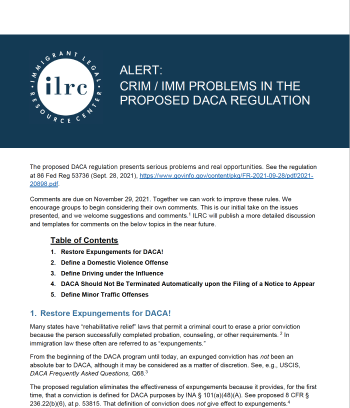
The proposed DACA regulation presents serious problems and real opportunities. See the regulation at 86 Fed Reg 53736 (Sept. 28, 2021), https://www.govinfo.gov/content/pkg/FR-2021-09-28/pdf/2021-20898.pdf.
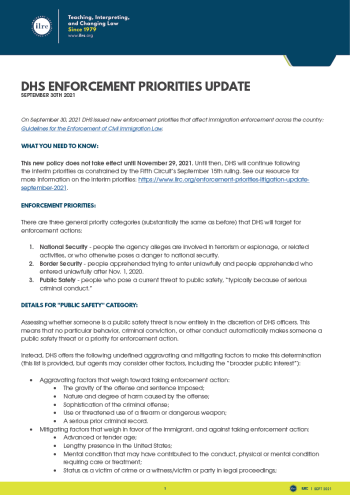
A quick digest of the new DHS immigration enforcement priorities released in September 2021.